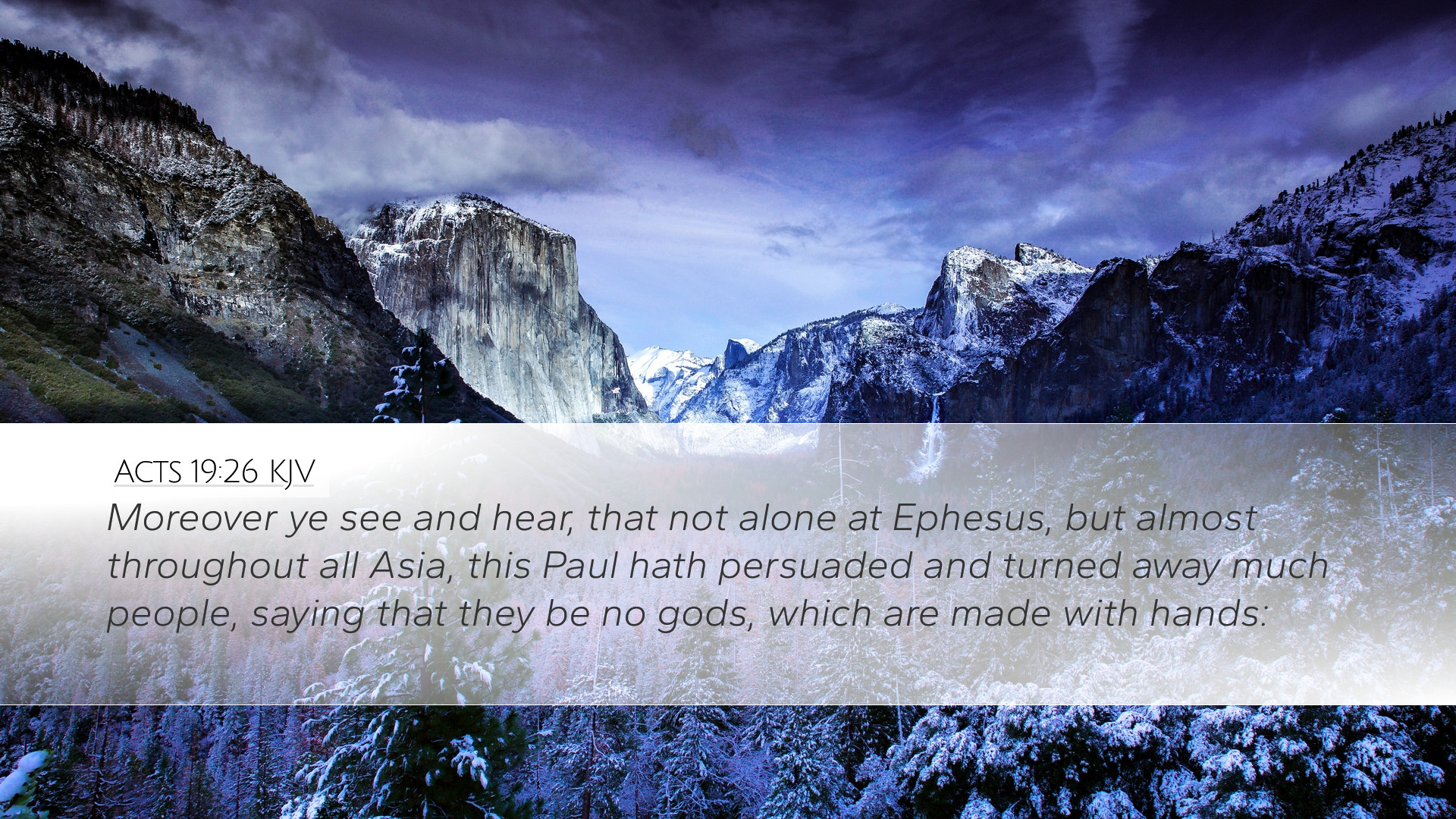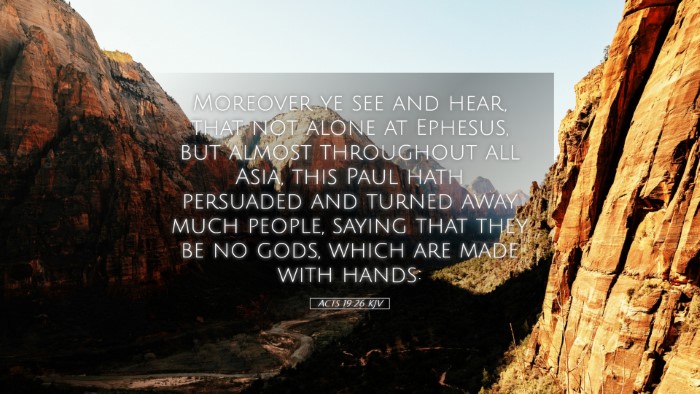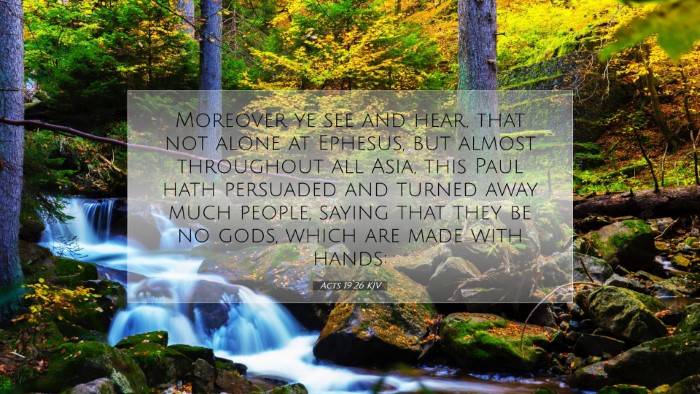Commentary on Acts 19:26
Acts 19:26 states: "And you see and hear that not only at Ephesus, but almost throughout all Asia, this Paul hath persuaded and turned away much people, saying that they be no gods, which are made with hands."
Introduction
The verse in question reflects a turning point in the early church's evangelistic efforts led by the Apostle Paul. Set against the backdrop of Ephesus, a city notorious for its worship of Artemis, this passage reveals the impact of Christian preaching on the local economy and religious practices. Through analyzing this verse, we uncover insights from various public domain commentaries which offer depth to the implications of Paul’s mission.
Contextual Background
To grasp the full significance of Acts 19:26, understanding the cultural and religious milieu of Ephesus is essential. As one of the leading cities in Asia Minor, Ephesus was famous for the Temple of Artemis, one of the Seven Wonders of the Ancient World. The social and economic structures were deeply intertwined with the worship of this goddess. Matthew Henry notes that the city thrived on idol-making and associated trades, providing a critical backdrop to Paul’s teachings.
Interpretation of the Verse
Paul’s message, as summarized by his opponents in this verse, asserts that gods made by human hands are not genuine deities. Albert Barnes elaborates, indicating that Paul's assertions were not mere theoretical musings but impactful truths that caused upheaval. His preaching persuaded many away from idolatry, indicating a significant movement against established religious practices.
The Role of Paul
Paul’s determination to spread the gospel is highlighted in this verse. Adam Clarke suggests that his approach evoked both conviction and conflict, leading many to reconsider their adherence to traditional beliefs. This transformation prompted notable resistance from those whose livelihoods depended on the idol industry. The boldness of Paul's condemnation of idolatry invoked a powerful response, transitioning the societal and spiritual landscape of Ephesus.
Impact on Society
The mention of "much people" being turned away from idols signifies a substantive movement. Henry posits that this resulted in both a spiritual revival and a socio-economic crisis for those involved in idolatrous worship. The phrase "throughout all Asia" serves to underscore the far-reaching effects of Paul’s ministry beyond Ephesus itself, indicating a growing awareness and rejection of false gods across the region. This situation provoked opposition from local craftsmen, as the subsequent verses reveal unrest among those profiting from the idol trade.
Lessons for Today’s Church
This passage brings forth pertinent reflections for contemporary Christian practice:
- Confrontation of Idolatry: Today, idolatry extends beyond physical statues to anything that takes precedence over God in believers' lives.
- The Influence of the Gospel: Just as Paul’s message transformed lives, the modern church is called to preach truth boldly, knowing it has the power to change hearts and society.
- Resistance to Change: Awareness of the pushback from those profiting off idolatrous practices warns the church today about potential resistance when confronting prevailing cultural norms.
Theological Reflections
At its core, Acts 19:26 challenges a believer’s understanding of God. The assertion that there are no gods made by hands elevates the theology of divine sovereignty and the uniqueness of God. As Albert Barnes remarks, the nature of God transcends all human fabrication. This reality necessitates a response of devotion and reverence worthy of the Creator.
Conclusion
Acts 19:26 encapsulates a pivotal moment in the early church where the implications of the gospel clashed with entrenched societal norms. The insights gleaned from Matthew Henry, Albert Barnes, and Adam Clarke illuminate the significance of Paul’s mission and the resultant impact on Ephesus. As pastors, theologians, and scholars reflect on this scripture, they are encouraged to recognize the enduring relevance of the message that true worship is reserved solely for the one true God, untainted by human hands.


